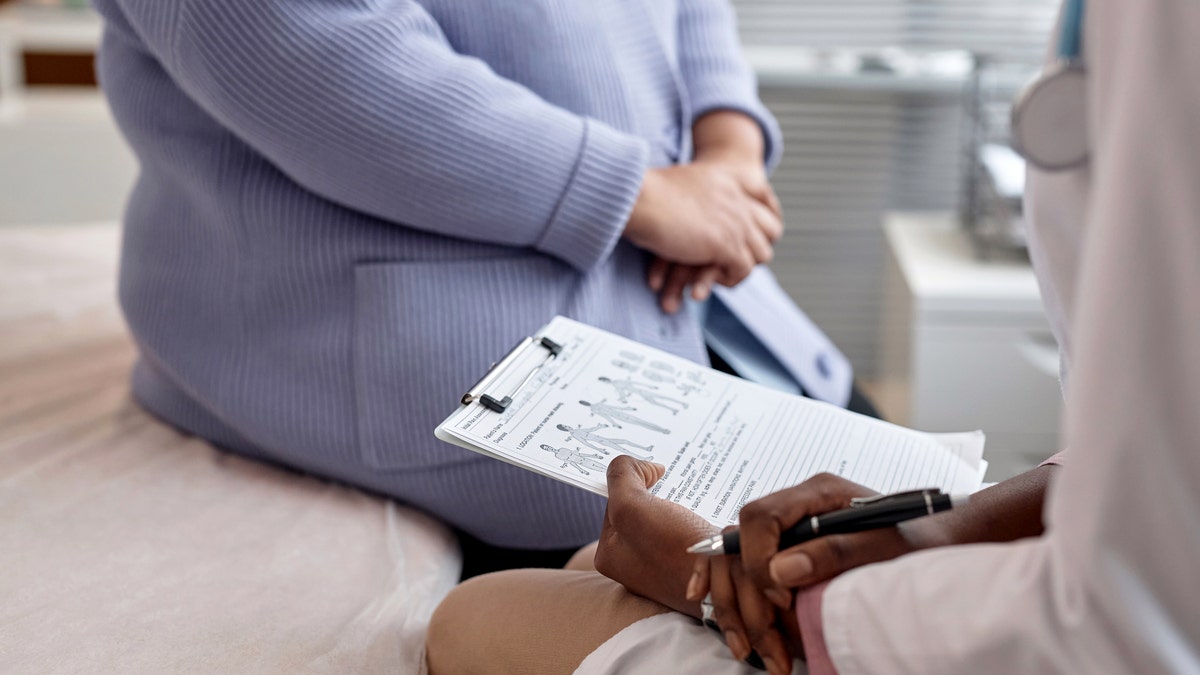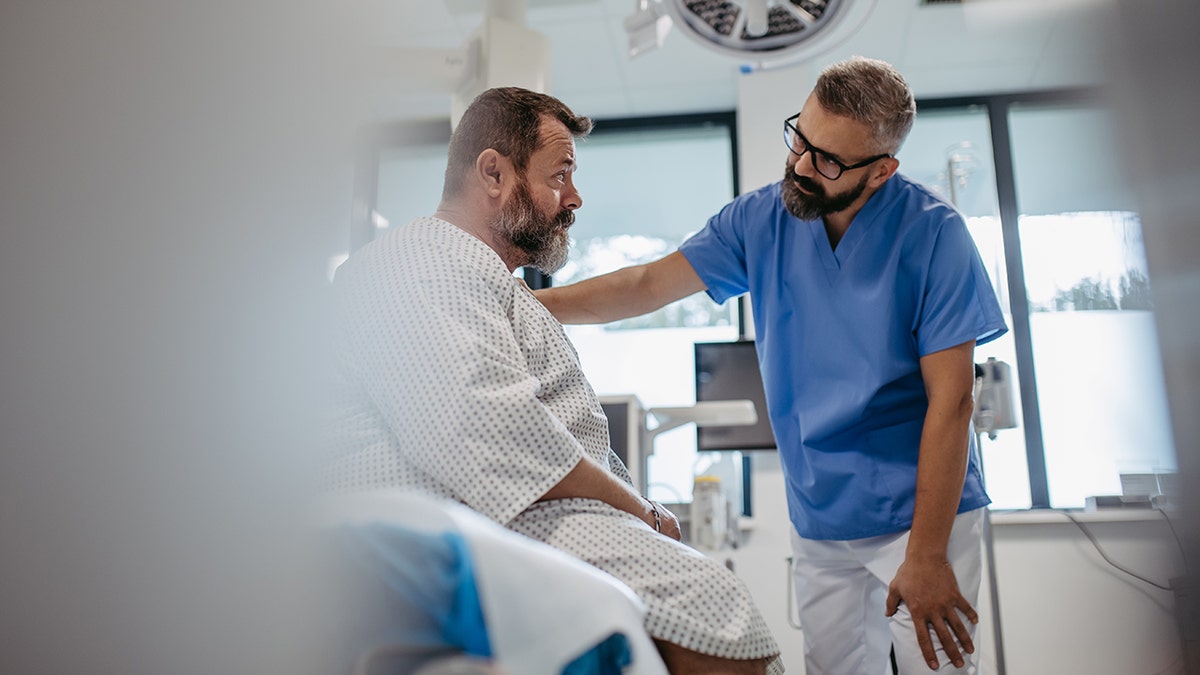NEWYou can now listen to Fox News articles!
Obesity-related cancer deaths have soared in the U.S. over the last two decades, rising from 3.73 million to 13.52 million.
That’s according to a study by researchers at Jersey Shore University Medical Center and Hackensack Meridian Health, which was presented last month at ENDO 2025, the Endocrine Society’s annual meeting in San Francisco.
The study analyzed more than 33,000 deaths from obesity-associated cancers between 1999 and 2020, using mortality data from the Centers for Disease Control and Prevention (CDC).
POPULAR WEIGHT-LOSS MEDICATION COULD RELIEVE PAINFUL ARTHRITIS SYMPTOMS, DOCTORS REPORT
Older adults, females and racial minorities were found to have a higher burden of risk.
Overall, the Midwest had the highest rate of obesity-related cancer deaths and the Northeast had the lowest.

The researchers found that obesity-related cancer mortality rates rose from 3.73 million to 13.52 million, by nearly four times, over a 20-year period. (iStock)
Vermont, Minnesota and Oklahoma had the highest rates, and Utah, Alabama and Virginia had the lowest.
According to the CDC, more than 40% of Americans have obesity, which raises the risk of developing certain cancers as well as other chronic conditions like high blood pressure, high cholesterol, diabetes, heart disease and kidney disease.
Obesity has been associated with a higher risk of developing 13 types of cancer.
Obesity has been associated with a higher risk of developing 13 types of cancer, which make up 40% of all cancers diagnosed in the U.S. every year.
WEIGHT-LOSS DRUGS’ IMPACT ON CANCER RISK REVEALED IN NEW STUDY
These cancer types include the following.
- Adenocarcinoma of the esophagus
- Breast (in post-menopausal women)
- Colon and rectum
- Uterus
- Gallbladder
- Upper stomach
- Kidneys
- Liver
- Ovaries
- Pancreas
- Thyroid
- Meningioma (brain cancer)
- Multiple myeloma
Study co-author Mohamed Bakr, M.D., associate director of Hackensack Meridian Jersey Shore University Medical Center’s Residency Program, confirmed that obesity-related cancer mortality has more than tripled in the U.S.

Obesity affects more than 40% of adults in America, with 13 specific types of cancer accounting for more than 40% of all diagnoses in the U.S. each year. (iStock)
The sharpest surge occurred between 2018 and 2020, according to Bakr.
“This research underscores the need for targeted public health strategies, such as early screening and improved access to care, especially in high-risk rural and underserved areas,” he told Fox News Digital.
YOUR DNA COULD BE STOPPING YOU FROM LOSING WEIGHT, NEW STUDY SUGGESTS
“Obesity is a serious public health threat, and the link between obesity and cancer is a crisis that should be addressed with the same urgency as other epidemics.”
Dr. Robert Den, radiation oncologist and chief medical officer at Alpha Tau Medical in Massachusetts, told Fox News Digital that there is a “concerning rise” in these cancers, particularly colorectal, endometrial, pancreatic and postmenopausal breast cancer.

There has been a “concerning rise” in obesity-related cancers, particularly colorectal, endometrial, pancreatic and postmenopausal breast cancer, a doctor said. (iStock)
“Alarmingly, these cancers are increasing not only in older adults, but also in younger patients — a trend we didn’t see a generation ago,” said Den, who was not involved in the study.
“These cancers tend to be more aggressive, harder to treat and costly to manage,” he added. “The sheer number of people at risk, combined with the rising obesity rates, means we’re looking at increased cancer burdens on individuals, families and healthcare systems.”
Strategies for prevention
Promoting healthy body weight through a balanced diet, regular physical activity and less alcohol consumption are important steps toward reducing cancer risk, according to Den, as well as cancer screenings and early intervention.
CLICK HERE TO GET THE FOX NEWS APP
“As physicians, we advocate for broader public health efforts — like better nutrition education, access to healthier foods and environments that support active living,” he said. “Additionally, new technologies and therapies represent a novel paradigm for the management of these diseases.”
“Preventing obesity is cancer prevention, and taking proactive steps now can improve long-term health outcomes across the population,” he added.

Promoting healthy body weight through a balanced diet, regular physical activity and less alcohol consumption can help reduce the risk of cancer, experts say. (iStock)
Sue Decotiis, M.D., a medical weight-loss doctor in New York City, noted in a separate interview with Fox News Digital that the use of obesity and diabetes drugs, like GLP-1 medications, has been associated with reducing cancer risk.
“It is one of the most impactful medical advancements we have had in a very long time,” she said.
CLICK HERE TO SIGN UP FOR OUR HEALTH NEWSLETTER
According to the doctor, “angry, inflamed fat cells,” called cytokines, are produced in large amounts in obese individuals, which can “bully and override” the body’s normal regulations, often leading to immune disruption and cancer.

Dr. Decotiis recommended seeing a certified weight-loss physician for an appropriate weight-loss plan, which could include GLP-1 medication. (iStock)
In addition to early cancer screenings, Decotiis recommends weight loss as a critical way to reduce risk.
Shedding extra pounds can help reduce inflammation in the body by reducing cytokines, which also prevents cancers, she said.
For more Health articles, visit www.foxnews.com/health
“It seems more prudent to aggressively treat obesity and insulin resistance, as well as clean up our food supply, instead of waiting for cancer to develop and hoping we can catch it and successfully treat it,” she said.
“Take the state of being overweight and obese seriously,” Decotiis advised. “If weight is not reduced by diet and exercise, I recommend seeing a certified weight-loss physician.”




Leave a Comment